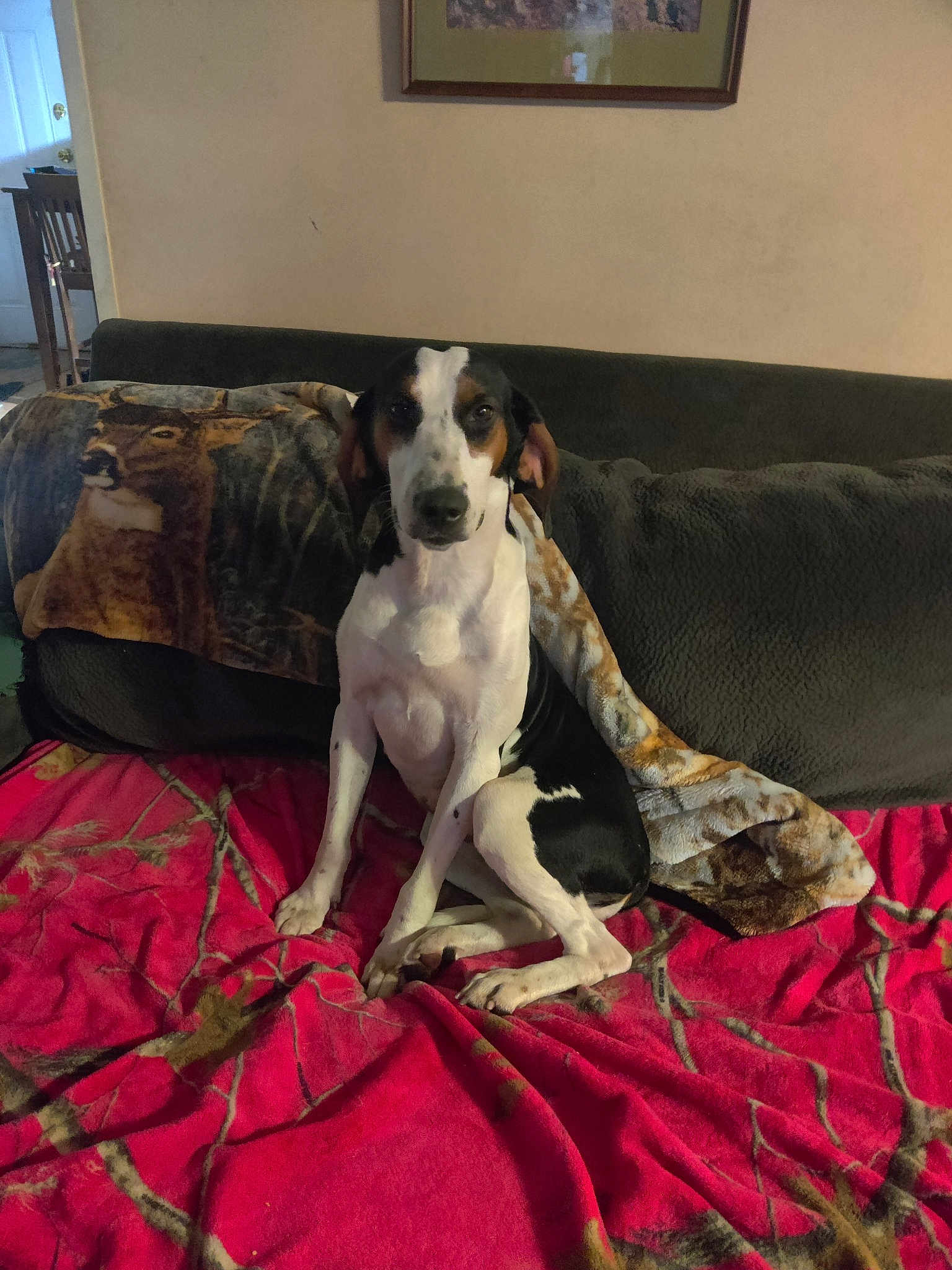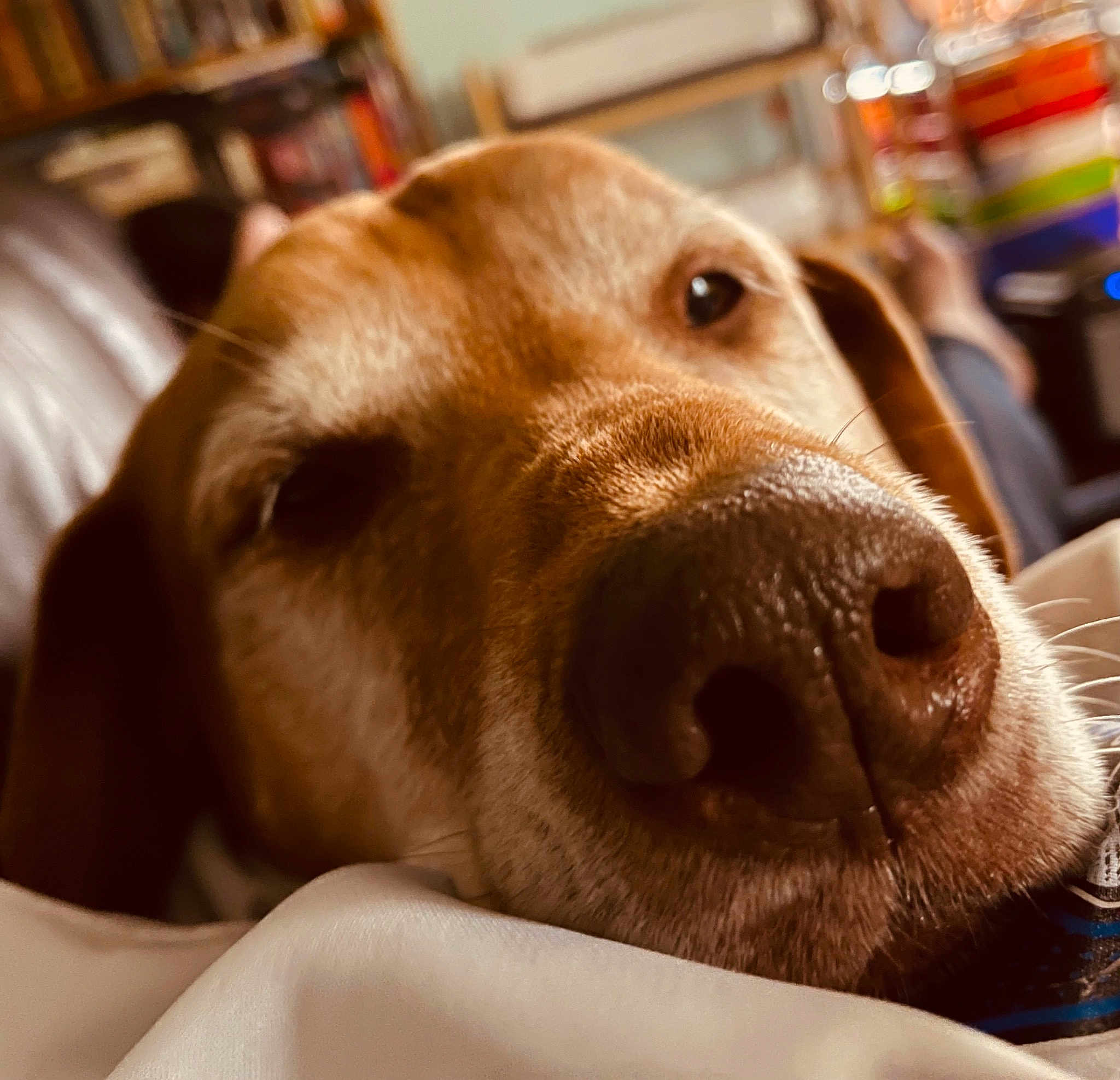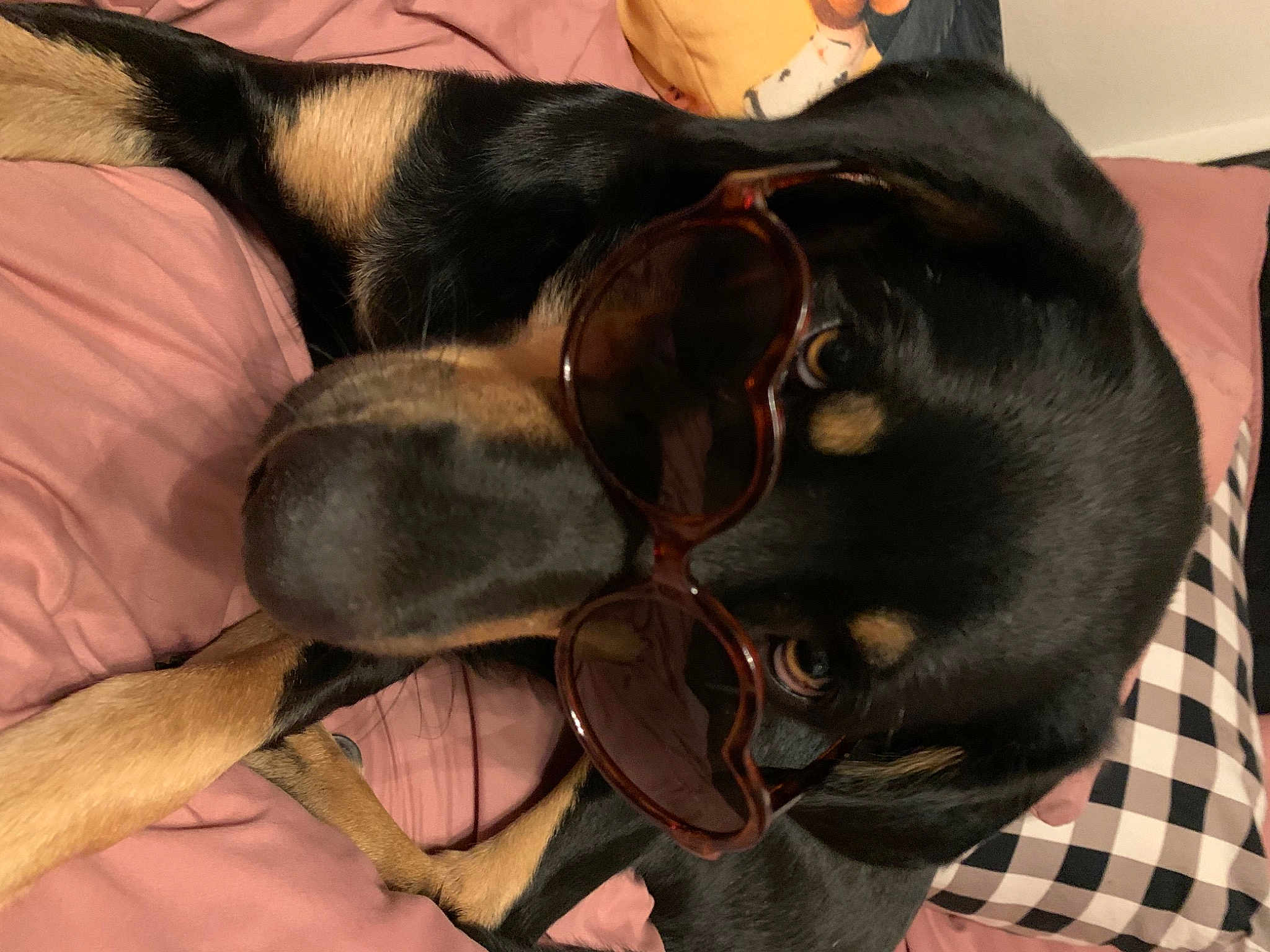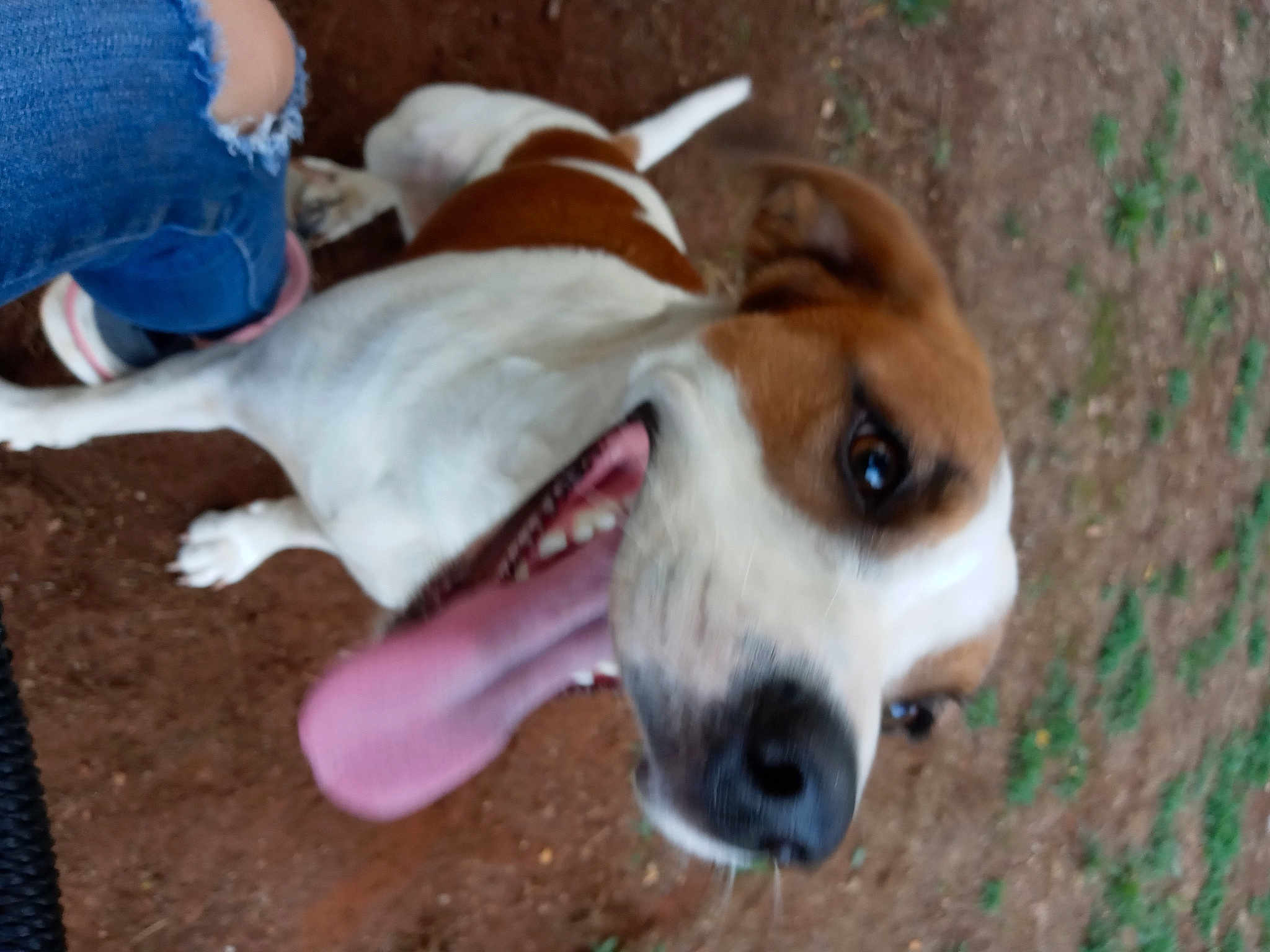"In the depths of the Alps, a distinctive and resilient breed emerged, known for its unwavering loyalty and unparalleled hunting skills - meet the Tyrolean Hound, a breed with a story as captivating as the snow-capped peaks it calls home."
Personality and Behavior of the Tyrolean Hound
The Tyrolean Hound, also known as the Tiroler Bracke, is a breed that embodies a blend of independence and loyalty. Known for their determination and stamina, these dogs have historically been used for hunting purposes, particularly in the rough terrains of the Austrian Alps. Consequently, they are highly energetic and thrive in environments where they have ample space to explore and time to engage in physical activities.
Despite their strong hunting instincts, Tyrolean Hounds are also known for their affectionate nature with their families. They form strong bonds with their human companions and can be protective, making them excellent guard dogs. Their loyalty and intelligence mean they can also be quite trainable, although they may test boundaries due to their independent streak.
However, their energy and determination can sometimes translate to stubbornness. This means that early training and socialization are essential to help them understand and respect household rules. They are generally good with children and other dogs, though their hunting instincts may prompt them to chase smaller animals.
Their behavior is a product of their history and environment. Tyrolean Hounds were bred to be versatile hunting dogs, capable of tracking and retrieving in mountainous regions. As such, they are resourceful and resilient, traits that manifest in their day-to-day behaviors.
Tyrolean Hounds were favored by hunters in Austria not just for their hunting skills, but also because of their ability to navigate the challenging alpine terrain while maintaining incredible endurance and focus.
Meanings, History and Origins of the name Tyrolean Hound
The name Tyrolean Hound is a direct reflection of the breed's origins in the Tyrol region of Austria. The term 'hound' refers to their function as hunting dogs. The breed's history stretches back to the Middle Ages, and they are believed to be descendants of ancient Celtic hounds. These dogs were used by local hunters to chase and track game, a task they performed with remarkable skill.
The Tyrolean Hound played a crucial role in the survival of communities in mountainous regions, where hunting was often essential for sustenance. Their ability to work tirelessly in harsh conditions made them invaluable. Over the centuries, their lineage was carefully maintained to preserve their hunting prowess and adaptability, leading to the strong, resilient breed we recognize today.
The breed's name highlights its deep-rooted connection to the Tyrol region, where it was refined to meet the specific needs of hunters in that area. This historical context adds a layer of cultural significance to the breed, underscoring its importance in the heritage of the region.
The Tyrolean Hound's development as a breed is a testament to the relationship between humans and dogs in survival and companionship. The careful selection and breeding practices that shaped the Tyrolean Hound were driven by necessity but ultimately resulted in a dog that is not only a consummate hunter but also a loyal family pet.
Popularity of the Tyrolean Hound
The Tyrolean Hound is a breed that remains relatively niche compared to some of the more popular hound varieties. This is largely due to its strong association with the specific hunting practices of the Tyrol region and its less common appearance in dog shows and as a household pet outside Europe.
In English-speaking countries, the Tyrolean Hound is not as widely recognized as breeds like the Beagle or the Basset Hound. However, within certain circles of hunting enthusiasts and dog aficionados, the breed is highly valued for its unique characteristics and historical lineage.
In Austria, the native land of the Tyrolean Hound, the breed enjoys a steady level of popularity. It is especially favored among hunters and those living in rural areas where the dog's tracking and endurance qualities can be fully utilized. Additionally, the breed is appreciated for its role in national heritage and continues to be a symbol of traditional Austrian hunting practices.
Elsewhere in Europe, the Tyrolean Hound is often recognized for its versatility and adaptability to different terrains. Though they are not as commonly kept as pets in urban settings, their reputation as exceptional hunting dogs ensures their continued relevance and respect across various regions.
Health and Care of the Tyrolean Hound
Like all breeds, the Tyrolean Hound has specific health and care needs that owners should be aware of. One of the primary health concerns for this breed is hip dysplasia, a condition common in many medium to large dogs. Responsible breeders often perform health screenings to minimize the risk of genetic issues.
Regular exercise is a must for Tyrolean Hounds. Their high energy levels and background as hunting dogs mean they need plenty of physical activity. Daily walks, runs, and playtime in open spaces are crucial to keep them happy and healthy. Mental stimulation through training and interactive games is also important to prevent boredom and destructive behavior.
Dietary needs for the Tyrolean Hound include a balanced diet that supports their active lifestyle. High-quality dog food, whether commercially available or home-prepared with veterinarian guidance, is essential. Owners should monitor their dog's weight and adjust feeding amounts to prevent obesity, which can exacerbate health problems like hip dysplasia.
Grooming a Tyrolean Hound is relatively straightforward. Their coat is usually coarse and weather-resistant, requiring regular brushing to remove loose hair and prevent matting. Bathing should be done as needed, and routine checks for ticks and other pests are important, especially for dogs that spend a lot of time outdoors.
Regular veterinary check-ups are key to maintaining the overall health of a Tyrolean Hound. Vaccinations, dental care, and preventive treatments for parasites should be kept up to date. By ensuring their dog's health needs are met, owners can enjoy a long, active, and fulfilling relationship with their Tyrolean Hound.
Training and Education of the Tyrolean Hound
The Tyrolean Hound is an intelligent and trainable breed, but their independent nature requires a firm and consistent approach to training. Early socialization is crucial to help them understand and accept various environments, people, and other animals.
Basic obedience training should start from a young age, focusing on commands like sit, stay, and come. Given their history as hunting dogs, Tyrolean Hounds respond well to training methods that incorporate positive reinforcement and reward-based techniques. Consistency and patience are key, as they can sometimes exhibit a stubborn streak.
Advanced training can involve activities that cater to their natural instincts, such as tracking and scent work. These activities not only provide the necessary mental stimulation but also allow the dogs to utilize their inherent skills. Engaging them in such tasks can be incredibly rewarding for both the dog and the owner.
One of the challenges in training a Tyrolean Hound is managing their high energy levels. Incorporating plenty of physical exercises into their routine helps keep them focused and reduces the likelihood of undesirable behaviors stemming from excess energy.
Training should also include leash manners, given the breed's tendency to follow scents and chase after game. Teaching them to follow commands while on a leash is essential for safe and enjoyable walks in public spaces.
Choosing the right dog often involves considering your lifestyle, activity level, and personal preferences. For those who enjoy outdoor activities and have the time and space to dedicate to a high-energy dog, the Tyrolean Hound can be an excellent choice. Their loyalty, intelligence, and unique history make them a rewarding breed to own.
The legacy of dog breeds extends beyond their physical traits, encompassing the long-standing relationships and cultural significance they hold. At KingPet, we celebrate this diversity, with many Tyrolean Hounds showcasing their charm in our contests. Selecting the Tyrolean Hound as your companion can bring a piece of alpine heritage into your home, wrapped in loyalty and boundless energy, making every day an adventure.







